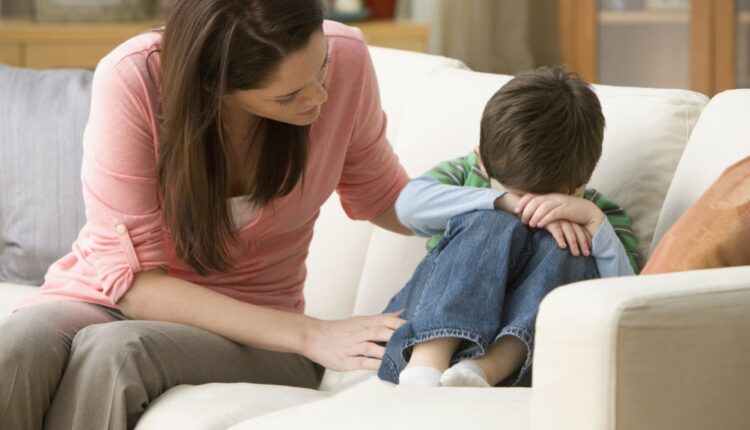School Safety: 10 Warning Signs to Watch for in Your Child
It’s back-to-school season.
While this can be an exciting time, it’s also important to be vigilant about your child’s well-being and mental health.
Too many tragic events remind us that we must be proactive in identifying potential warning signs in children that could escalate into violence.
Once a sanctuary of safety, schools have become where students perform drills in preparation for an active shooter situation. While the roots of school violence and other mass shootings are complex and multi-determined, the origins remain deeply embedded in our cultural ailment: the lack of focus on childhood development and our lack of connection to those in distress.
As parents, we play a crucial role in providing our kids with a safe and nurturing environment. As educators, we also play a pivotal role in maintaining vigilance in spotting and addressing signs of mental illness—which can be invisible and difficult to assess.
This dilemma may be especially true for youths, as early signs of mental illness may be confused with typical teenage angst. Irritability, mood swings, and withdrawal are common signs of mental illness, but these behaviors can also be normal.
Parents must stay in tune with their child’s emotions. Parents must identify signs of mental illness and secure psychiatric treatment if their child is suffering.
Here are 10 warning signs to watch for in your child; these signs may require further attention and support:
- Significant Changes in Mood or Behavior: Be attuned to sudden or drastic shifts in your child’s mood, personality, or behavior. This could include increased anger, aggression, withdrawal, or dramatic mood swings.
- Obsession with Weapons or Violence: If your child develops an unusual fascination with weapons, violent media, or acts of cruelty, this could be a red flag.
Marginalized or Being Bullied: Being the target of bullying leads to a sense of marginalization. - Difficulty Forming Relationships: Challenges in making and maintaining healthy peer relationships, or signs of social isolation, may signify a need for additional support.
- Difficulty dealing with recent stressor and trauma: loss of stabilizing parent or caretaker, expulsion from school, dislocations, rejection by love interest
- Psychosis, Expressing Suicidal Thoughts and or Homicidal Ideation: Psychosis, including command auditory hallucinations telling them to kill, paranoid ideation, delusions, and any mention of wanting to harm themselves or end their life should be taken seriously and immediate psychiatric treatment must be secured.
- Childhood Abuse or Neglect: Childhood abuse and neglect contributes to a sense of isolation and alienation.
- Fixation on Grievances or Desire for Revenge: If your child seems to be harboring intense feelings of resentment, anger, or a need for retribution, this could be a cause for concern.
- Experiencing humiliation and shame: Experiencing humiliation and shame may lead to a desire for retribution and revenge.
- Access to Firearms: If your child has access to guns, whether through your own home or other means, this poses a significant risk that must be addressed immediately. Even if you think you have locked up your gun, studies have shown that children can unlock and access them easily and readily.
Violence can be avoided. In our award-winning, cutting-edge psychiatric study of school shooters, we found that it is usually a combination of factors that leads to a pathway of violence. My research team and I conducted the first psychiatric study using standardized measures on domestic mass shooters and found that although the violence was multi-determined in origin, there was a very high prevalence of undiagnosed and untreated psychiatric illness. Most of the cases of school shootings that our team studied might have been prevented had the assailant, after typically being identified as “troubled” by secondary support systems, received appropriate psychiatric diagnostic evaluation followed by medication and psychotherapeutic support.
However, it is important not to lose sight of the larger perspective that most who suffer from treated mental health illness are not more violent than the rest of the population.
Adolescent mass shooters often display noticeably disturbed behavior for some time before the shooting, and then a personal crisis often ignites the violence. Recognizing and reporting the warning signs of someone preparing for gun violence is lifesaving.
The etiology of school shootings is complex and an intersection of many issues: mental illness, marginalization, chronic abuse, neglect, and easy access to guns.
Having parents and schools collaborate to secure needed psychiatric treatment is crucial—everyone needs to speak out if they see someone threatening violence. We cannot stand on the sidelines and remain uninvolved, frightened, or silenced.
Remember, the presence of one or more of these warning signs does not necessarily mean your child is headed down a dangerous path. However, it’s crucial to take them seriously and seek professional help if you have any concerns about your child’s well-being. With early intervention and the right support, we can work together to ensure the safety and healthy development of all our children.
Raising awareness of the warning signs of at-risk, fragile young people and getting them psychiatric treatment is vital to decreasing the prevalence of school shootings.
Mental health professionals have the responsibility of using psycho-education to better inform parents to demand psychiatric treatment for their children who are suffering from psychosis, suicidal, or homicidal ideation.
Stay vigilant, stay informed, and have a safe and successful school year!



